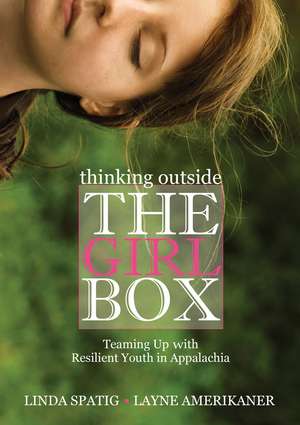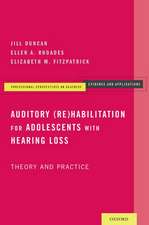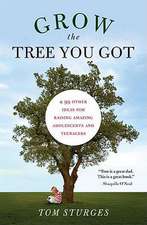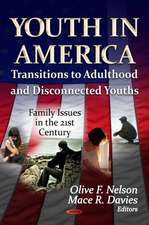Thinking Outside the Girl Box: Teaming Up with Resilient Youth in Appalachia: Race, Ethnicity and Gender in Appalachia
Autor Linda Spatig, Layne Amerikaneren Limba Engleză Paperback – 5 ian 2014
Thinking Outside the Girl Box is a true story about a remarkable youth development program in rural West Virginia. Based on years of research with adolescent girls—and adults who devoted their lives to working with them—Thinking Outside the Girl Box reveals what is possible when young people are challenged to build on their strengths, speak and be heard, and engage critically with their world.
Based on twelve years of field research, the book traces the life of the Lincoln County Girls’ Resiliency Program (GRP), a grassroots, community nonprofit aimed at helping girls identify strengths, become active decision makers, and advocate for social change. In the late 1990s and early 2000s, the GRP flourished. Its accomplishments were remarkable: girls recorded their own CDs, published poetry, conducted action research, opened a coffeehouse, performed an original play, and held political rallies at West Virginia’s State Capitol. The organization won national awards, and funding flowed in. Today, in 2013, the programming and organization are virtually nonexistent.
Thinking Outside the Girl Box raises pointed questions about how to define effectiveness and success in community-based programs and provides practical insights for anyone working with youth. Written in an accessible, engaging style and drawing on collaborative ethnographic research that the girls themselves helped conduct, the book tells the story of an innovative program determined to challenge the small, disempowering “boxes” girls and women are so often expected to live in.
Based on twelve years of field research, the book traces the life of the Lincoln County Girls’ Resiliency Program (GRP), a grassroots, community nonprofit aimed at helping girls identify strengths, become active decision makers, and advocate for social change. In the late 1990s and early 2000s, the GRP flourished. Its accomplishments were remarkable: girls recorded their own CDs, published poetry, conducted action research, opened a coffeehouse, performed an original play, and held political rallies at West Virginia’s State Capitol. The organization won national awards, and funding flowed in. Today, in 2013, the programming and organization are virtually nonexistent.
Thinking Outside the Girl Box raises pointed questions about how to define effectiveness and success in community-based programs and provides practical insights for anyone working with youth. Written in an accessible, engaging style and drawing on collaborative ethnographic research that the girls themselves helped conduct, the book tells the story of an innovative program determined to challenge the small, disempowering “boxes” girls and women are so often expected to live in.
Preț: 225.16 lei
Nou
Puncte Express: 338
Preț estimativ în valută:
43.09€ • 45.31$ • 35.60£
43.09€ • 45.31$ • 35.60£
Carte tipărită la comandă
Livrare economică 16-30 aprilie
Preluare comenzi: 021 569.72.76
Specificații
ISBN-13: 9780821420607
ISBN-10: 0821420607
Pagini: 224
Dimensiuni: 152 x 216 x 18 mm
Greutate: 0.27 kg
Ediția:1
Editura: Ohio University Press
Colecția Ohio University Press
Seria Race, Ethnicity and Gender in Appalachia
ISBN-10: 0821420607
Pagini: 224
Dimensiuni: 152 x 216 x 18 mm
Greutate: 0.27 kg
Ediția:1
Editura: Ohio University Press
Colecția Ohio University Press
Seria Race, Ethnicity and Gender in Appalachia
Recenzii
“Written with great tenderness and insight, this book portrays West Virginia through the eyes of those who seldom appear in the literature about Appalachia: rural girls.”—Barbara Ellen Smith, co-editor of Transforming Places: Lessons from Appalachia
“Thinking Outside the Girl Box reads as a delicious, compelling, collaborative ethnography that escorts readers into the delicate, rugged human terrain of life in Appalachia…. This book is beautifully accessible to undergraduates or graduates. Spatig and Amerikaner are gifted story-tellers. Together, with the young women and their mentors, they have crafted a sweet jewel, opening the box of ethnography, challenging the girdle of evaluation, asking us to peer inside the intimacy of growing up girl in rural America.”—Michelle Fine, The Graduate Center, CUNY
“Thinking Outside the Girl Box will change the way you look at words like resiliency, development, democracy, girls. Spatig and Amerikaner remind their readers that a real feminist analysis begins with love and that its methodology is necessarily one of loving collaboration. In a period in which multinational agency after multinational agency is `discovering’ that girls exist, the story of the Girls Resiliency Program is a necessary one.”—Daniel Moshenberg, coeditor of Searching for South Africa: The New Calculus of Dignity
“This is an extraordinary collaborative ethnography, one that authentically involves research participants in multiple stages of the research and writing processes. But it is also much more than this. It is, as Spatig and Amerikaner suggest, a love story that both warms and breaks the heart.”—Luke Eric Lassiter, author of The Chicago Guide to Collaborative Ethnography
“The Girls’ Resiliency Program helped middle- and high- school-aged girls find their voices through community building and social activism. In telling this story, authors Linda Spatig and Layne Amerikaner demonstrate what can happen when people are given the tools to build their strengths, speak out, and engage in changing the world. Good research opens questions for further study, and that is what makes Thinking Outside the Girl Box a vital work.”—Terrence Fernsler, Nonprofit World
“Written with great tenderness and insight, this book portrays West Virginia through the eyes of those who seldom appear in the literature about Appalachia: rural girls. The stories of their struggles and transformations are revelatory—instructive and beautiful in equal measure. P.S. I love the book!”
—Barbara Ellen Smith, Department of Sociology, Virginia Tech, and co-editor of Transforming Places: Lessons from Appalachia
—Barbara Ellen Smith, Department of Sociology, Virginia Tech, and co-editor of Transforming Places: Lessons from Appalachia
“Far too often theories become abstract and convoluted—losing connection to reality in the pursuit of ever higher levels of elaboration. Theorists cite other theorists to prove their erudition. This book, however, is a story that advances theory. Spatig and Amerikaner take life experience that they have felt—love, disappointment and suffering—and conceptualize that knowledge into critical theory. This book is not just about Appalachian girls. This book is about how we study and think about life around us. This book is about how scholars should expose social inequality and oppression and then write about it. When all is said and done what will be remembered are their conclusions about how we do our work and why.”
— Lynda Ann Ewen, Founder, Center for the Study of Ethnicity and Gender in Appalachia at Marshall University
— Lynda Ann Ewen, Founder, Center for the Study of Ethnicity and Gender in Appalachia at Marshall University
“This is an extraordinary collaborative ethnography, one that authentically involves research participants in multiple stages of the research and writing processes. But it is also much more than this. It is, as Spatig and Amerikaner suggest, a love story that both warms and breaks the heart. Thinking Outside the Girl Box documents the amazing successes, and then the unsettling demise, of the Girls’ Resiliency Program, a community-based youth development program in one of the poorest counties in one of the poorest states in the country. Make no mistake, though, this isn’t another account about victims of rural poverty. The adult leaders and young women who are both subjects and research partners in this study do struggle against enormous odds; yet their remarkable and resilient commitment to model positive relationships and to make a difference to each other and within their communities inspires hope for what is possible when we decide to work together for change. Anyone with an interest in youth programs, Appalachia, rural poverty, or gender studies—and, of course, collaborative ethnography—should read this book.”
—Luke Eric Lassiter, author of The Chicago Guide to Collaborative Ethnography
—Luke Eric Lassiter, author of The Chicago Guide to Collaborative Ethnography
Notă biografică
Linda Spatig is professor of educational foundations at Marshall University in Huntington, West Virginia.
Layne Amerikaneris a communications specialist at People For the American Way in Washington, DC.
Layne Amerikaneris a communications specialist at People For the American Way in Washington, DC.
Cuprins
- Preface
The Nutshell. Or,The What, When, How,Where,Who, and Why - Introduction
When I Fell in Love with Shelley Gaines - 1
RIC
Context Matters. Or, Lincoln County, West Virginia: “I Love It. I’ll Leave Someday.” - 2
Shelley
The Birth of the GRP. It’s a Girl (-Driven Program)! - 3
Teresa
The Girls Have More to Say Than They Thought They Did - 4
Cassi
“They Will Make You Eat That.” Or, Tales of New Experiences and Adventure - 5
Irene And Virginia
Girls Take the Lead, but “It’s Hard Coming from a Participant to Staff” - 6
Leanne And Betty
The GRP Collapses, but the Learning Goes On (and On) - 7
Ashley
Life after the GRP. Or,“College Is a Big Smack in the Face.” - 8
Linda And Layne
There’s a (Research) Method to Our Madness - Notes
- References
- Index
Descriere
Written in an accessible, engaging style and drawing on collaborative ethnographic research that the girls themselves helped conduct, Thinking Outside the Girl Box tells the true story of an innovative program determined to challenge the small, disempowering “boxes” girls and women are so often expected to live in.

























